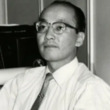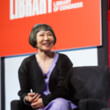I Hotel
(Libby/OverDrive eAudiobook)
Lin, Angela Narrator
Wu, Nancy Narrator
de Ocampo, Ramón Narrator
Ikeda, Jennifer Narrator
Available Platforms
Description
More Details
Similar Titles From NoveList
Similar Authors From NoveList
Published Reviews
Booklist Review
*Starred Review* The International Hotel, or I Hotel, was an actual San Francisco landmark, the base for a wild array of pan-Asian artistic, political, and community endeavors. And now this fortress and beacon provides the impetus and structure for Yamashita's exuberant, irreverent, passionately researched, and many-voiced novel about the Yellow Power movement. Author of the indelible Tropic of Orange (1997), Yamashita nets the social and personal ferment of the years 1968 through 1977 in 10 interconnected, stylistically varied segments. As this jazzy, kaleidoscopic novel unfolds, we meet orphaned teenager Paul and his mentor Chen, a radical professor; Mo Akagi, a Yellow Panther; Gerald, an avant-garde saxophonist; Sandy Hu, an innovative choreographer; and all kinds of gutsy and inventive activists, some in wheelchairs, who comprise a broad spectrum of courageous Asian Americans asserting their rights. With a rich soundscape punctuated by James Brown, Aretha Franklin, and Janis Joplin; Mao, Malcolm, and Martin; and a narrative pastiche of demonstrations, jam sessions, guerrilla theater, and kung fu; transcripts, puns, and letters--not to mention sex, pot, and risky adventures; comedy, tragedy, and triumph--Yamashita's colossal novel of the dawn of Asian American culture is the literary equivalent of an intricate and vibrant street mural depicting a clamorous and righteous era of protest and creativity.--Seaman, Donna Copyright 2010 Booklist
Publisher's Weekly Review
In Yamashita's latest, she strings together a stunningly complete vision of San Francisco's Asian American community in the late 1960s and early '70s, using the titular inn as a meeting point for ten loosely-connected novellas, each covering a single year. Focusing on the struggle for equality and peace as it involved this particular community, Yamashita's work also incorporates a broad view of the Asian and Asian American experiences, from Japanese internment camps to the Marcos dictatorship. Yamashita accomplishes a dynamic feat of mimesis by throwing together achingly personal stories of lovers, old men, and orphaned children; able synopses of historical events and social upheaval; and public figures like Lenin and Malcolm X (Yamashita's opening line: "So I'm Water Cronkite, dig?"). Despite its experimental and fictionalized nature, the novel reads more like a patchwork oral history, determined to relate the facts of its setting and, more importantly, the feelings of it; with varied commingling of voices and formats (stream-of-consciousness, slangy first person, quotes, dossiers, academic papers, even written-out choreography), the narrative reads like a collection of primary sources. Though it isn't for everyone, this powerful, deeply felt, and impeccably researched fiction is irresistibly evocative and overwhelming in every sense. 30 b&w photos and illus. (May) Copyright 2010 Reed Business Information.
Library Journal Review
Comprising ten novellas that took ten years to craft, this is Yamashita's (Circle K Cycles) magnum opus. Year by year, the novellas mark a decade's worth of tumultuous Asian Pacific American (APA) history, from 1968, when ethnic studies was painfully birthed in San Francisco, to 1977, when San Francisco's I-Hotel-long a pivotal symbol of APA activism-fell to demolition crews. At first reading, this work is a sprawling narrative filled with multiple perspectives about California's Asian Americans. But dig just slightly deeper, and it proves to be a magnificent, gripping exercise in distinguishing the fake from the real: S.I. Hayakawa was indeed San Francisco State University's acting president in 1968, while Mo Akagi is a composite for activists Richard Aoki and Mo Nishida. Yamashita even directly (shockingly, hysterically!) addresses the legendary "fake vs. real" debate still agitating Asian American literary circles, with side-by-side cartoon drawings of opposing APA icons Maxine Hong Kingston and Frank Chin. VERDICT Even without any background in APA history, readers will find Yamashita's tome intriguing. Complementary texts that might intensify an already superb literary experience include Kingston's Woman Warrior, Chin and others' Aiiieeeee! and The Big Aiiieeeee!, Estella Habal's San Francisco's International Hotel, and David Henry Hwang's play script Yellow Face.-Terry Hong, Smithsonian Asian Pacific American Program, Washington, DC last-minute Mystery (c) Copyright 2010. Library Journals LLC, a wholly owned subsidiary of Media Source, Inc. No redistribution permitted.
Kirkus Book Review
An overstuffed, multiform swirl of a novel about a decade in the life of San Francisco's Chinatown and, by extension, the Asian experience in America.Yamashita (Circle K Cycles, 2001, etc.) blends prose, theater and art into this set of related novellas centered on a shabby residential hotel. The story opens on the Lunar New Year of 1968. Says her narrator, "Now we know the Vietnamese call it Tet, but the Chinese own it: New Year, they call it," a time in Vietnam as in Chinatown of explosions, bright lights and revolutionary fervor. Vietnam haunts young Paul, who worries about dying there even as he prepares for his father's funeral; by Chinese reckoning, he is too young to take his place at the head of the family, but not to be swept up into a faraway conflict. Paul take his cues from Chen, a Mao- and Gertrude Steinquoting collector of postcards, and from alternative journalist Edmund, who covers the foment over whether to establish an ethnic-studies program at the university and declare Chinese New Year a holiday in the local school system. The '60s shade into the '70s, and Yamashita's prose gives way to blocks of play-like dialogue complete with set directions ("Raucous laughter. sound of James Brown: "Like a Sex Machine"), as new characters come onto the stage that is the I Hotel, representing many ethnicities: a Filipino American farm workers' union activist; a Japanese American organizer who turns a sweatshop into the I-Hotel Cooperative Garment Factory, its machines "whirring with industry and purpose"; a burly Samoan who escapes being busted for illegally fishing by telling a warden, "See this tattoo?...This is my hunting license." Elements of the picaresque and the satirical play against passages that are almost documentary as the characters struggle to keep the hotel from being gentrifiedand to keep the revolution alive in a time when just about everyone seems tired of politics.With delightful plays of voice and structure, this is literary fiction at an adventurous, experimental high point.]] Copyright Kirkus Reviews, used with permission.
Booklist Reviews
*Starred Review* The International Hotel, or I Hotel, was an actual San Francisco landmark, the base for a wild array of pan-Asian artistic, political, and community endeavors. And now this "fortress" and "beacon" provides the impetus and structure for Yamashita's exuberant, irreverent, passionately researched, and many-voiced novel about the Yellow Power movement. Author of the indelible Tropic of Orange (1997), Yamashita nets the social and personal ferment of the years 1968 through 1977 in 10 interconnected, stylistically varied segments. As this jazzy, kaleidoscopic novel unfolds, we meet orphaned teenager Paul and his mentor Chen, a radical professor; Mo Akagi, a Yellow Panther; Gerald, an avant-garde saxophonist; Sandy Hu, an innovative choreographer; and all kinds of gutsy and inventive activists, some in wheelchairs, who comprise a broad spectrum of courageous Asian Americans asserting their rights. With a rich soundscape punctuated by James Brown, Aretha Franklin, and Janis Joplin; Mao, Malcolm, and Martin; and a narrative pastiche of demonstrations, jam sessions, guerrilla theater, and kung fu; transcripts, puns, and letters––not to mention sex, pot, and risky adventures; comedy, tragedy, and triumph––Yamashita's colossal novel of the dawn of Asian American culture is the literary equivalent of an intricate and vibrant street mural depicting a clamorous and righteous era of protest and creativity. Copyright 2009 Booklist Reviews.
Library Journal Reviews
Comprising ten novellas that took ten years to craft, this is Yamashita's (Circle K Cycles) magnum opus. Year by year, the novellas mark a decade's worth of tumultuous Asian Pacific American (APA) history, from 1968, when ethnic studies was painfully birthed in San Francisco, to 1977, when San Francisco's I-Hotel—long a pivotal symbol of APA activism—fell to demolition crews. At first reading, this work is a sprawling narrative filled with multiple perspectives about California's Asian Americans. But dig just slightly deeper, and it proves to be a magnificent, gripping exercise in distinguishing the fake from the real: S.I. Hayakawa was indeed San Francisco State University's acting president in 1968, while Mo Akagi is a composite for activists Richard Aoki and Mo Nishida. Yamashita even directly (shockingly, hysterically!) addresses the legendary "fake vs. real" debate still agitating Asian American literary circles, with side-by-side cartoon drawings of opposing APA icons Maxine Hong Kingston and Frank Chin. VERDICT Even without any background in APA history, readers will find Yamashita's tome intriguing. Complementary texts that might intensify an already superb literary experience include Kingston's Woman Warrior, Chin and others' Aiiieeeee! and The Big Aiiieeeee!, Estella Habal's San Francisco's International Hotel, and David Henry Hwang's play script Yellow Face.—Terry Hong, Smithsonian Asian Pacific American Program, Washington, DC
[Page 69]. Copyright 2010 Reed Business Information.PW Annex Reviews
In Yamashita's latest, she strings together a stunningly complete vision of San Francisco's Asian American community in the late 1960s and early '70s, using the titular inn as a meeting point for ten loosely-connected novellas, each covering a single year. Focusing on the struggle for equality and peace as it involved this particular community, Yamashita's work also incorporates a broad view of the Asian and Asian American experiences, from Japanese internment camps to the Marcos dictatorship. Yamashita accomplishes a dynamic feat of mimesis by throwing together achingly personal stories of lovers, old men, and orphaned children; able synopses of historical events and social upheaval; and public figures like Lenin and Malcolm X (Yamashita's opening line: "So I'm Water Cronkite, dig?"). Despite its experimental and fictionalized nature, the novel reads more like a patchwork oral history, determined to relate the facts of its setting and, more importantly, the feelings of it; with varied commingling of voices and formats (stream-of-consciousness, slangy first person, quotes, dossiers, academic papers, even written-out choreography), the narrative reads like a collection of primary sources. Though it isn't for everyone, this powerful, deeply felt, and impeccably researched fiction is irresistibly evocative and overwhelming in every sense. 30 b&w photos and illus. (May) Copyright 2010 Reed Business Information.
Reviews from GoodReads
Citations
Yamashita, K. T., Lin, A., Wu, N., de Ocampo, R., Ikeda, J., Changchien, L., Yaegashi, J., & Ahn, A. (2011). I Hotel (Unabridged). Recorded Books, Inc..
Chicago / Turabian - Author Date Citation, 17th Edition (style guide)Karen Tei Yamashita et al.. 2011. I Hotel. Recorded Books, Inc.
Chicago / Turabian - Humanities (Notes and Bibliography) Citation, 17th Edition (style guide)Karen Tei Yamashita et al.. I Hotel Recorded Books, Inc, 2011.
Harvard Citation (style guide)Yamashita, K. T., Lin, A., Wu, N., de Ocampo, R., Ikeda, J., Changchien, L. and Yaegashi, J. et al (2011). I hotel. Unabridged Recorded Books, Inc.
MLA Citation, 9th Edition (style guide)Yamashita, Karen Tei, et al. I Hotel Unabridged, Recorded Books, Inc., 2011.
Copy Details
| Collection | Owned | Available | Number of Holds |
|---|---|---|---|
| Libby | 1 | 1 | 0 |































